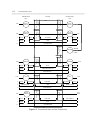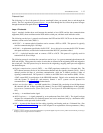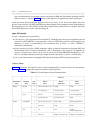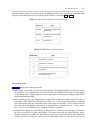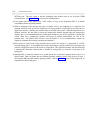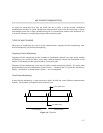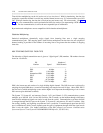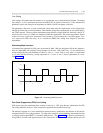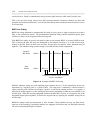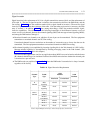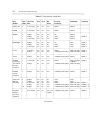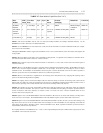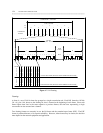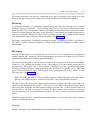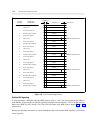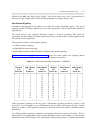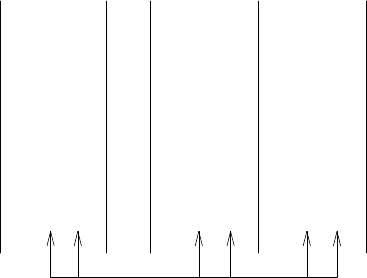
1-20 MULTIPLEXED COMMUNICATION
_ ___________________________________________________________________________________________________________________________
_ ___________________________________________________________________________________________________________________________
_ ___________________________________________________________________________________________________________________________
ever be all zeros. Mode-2 communication always ensures signal inversion, while mode 3 usually does.
ZCS is the only line coding allowed over DS1 restricted channels. Restricted channels are those that
guarantee successful transmission for voice and for data that has been encoded to ensure that there is never
an all-zeros byte.
B8ZS Line Coding
B8ZS line coding substitutes a predetermined bit string for every group of eight consecutive zeros that it
finds in the transmission stream. The predetermined substitute string contains intentional bipolar pulse
violations so that it can be recognized at the receiving end.
With B8ZS line coding, no special care must be taken to use inverted HDLC or inverted LAPD for data.
This is because the data will never be adulterated by the arbitrary insertion of 1s in the all-zeros byte.
Instead, at the DS1 board, for both voice and data, all-zero bytes are replaced with a substitute string of
eight bits. The substitute string contains enough 1s to fulfill the ones-density requirement.
Uncoded
of last 1 transmitted
Intentional violations based on polarity
0+ 000-+0+- 000-+0+- -+- 000+-0-+ 0+00-+ Stream
Pulse
01 00000000 00000000 111 00000000 010011 Bit Stream
Figure 1-6. Example of B8ZS Line Coding
Different substitute strings are used depending upon whether the last 1 in the transmission stream was
represented by a negative pulse or a positive pulse. The string that is substituted is chosen because it
creates a bipolar pulse violation (for example, a positive 1, followed by another positive 1; or a negative 1
followed by another negative 1), thus alerting the the receiving equipment to either an error condition or an
all-zeros byte. When the receiving equipment examines the byte that is in error, if it recognizes one of the
designated bipolar pulse sequences, it restores the original data by replacing the substitute string with an
all-zeros byte.
B8ZS line coding is used over unrestricted, or clear, channels. These channels can carry any kind of data,
regarless of the encoding. Unrestricted channels are equipped with devices that can distinguish between
true errors and intentional bipolar violations.



